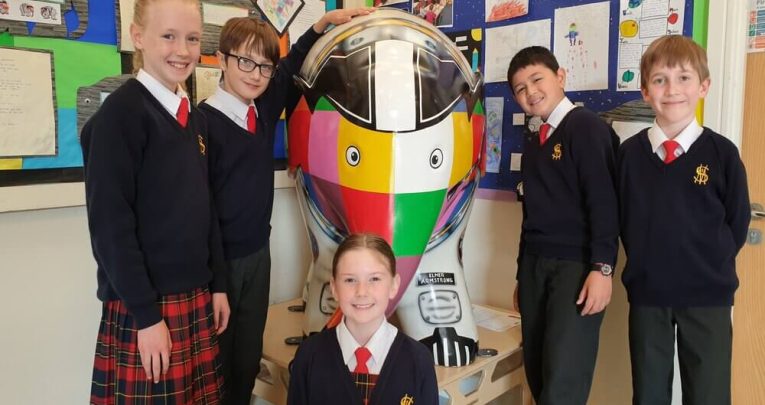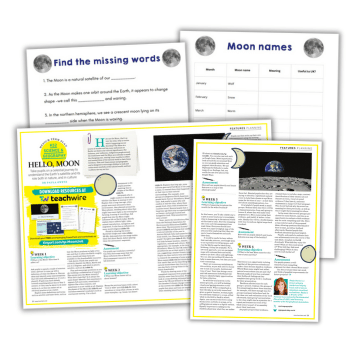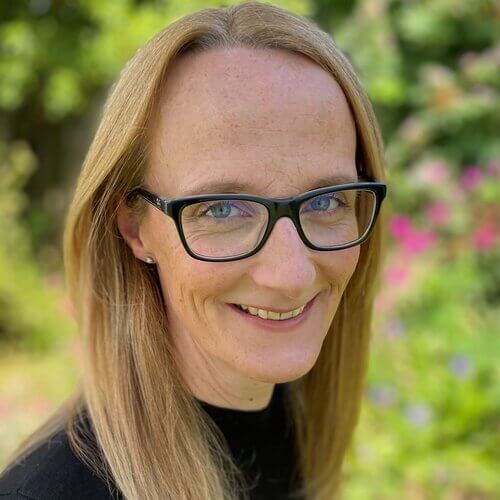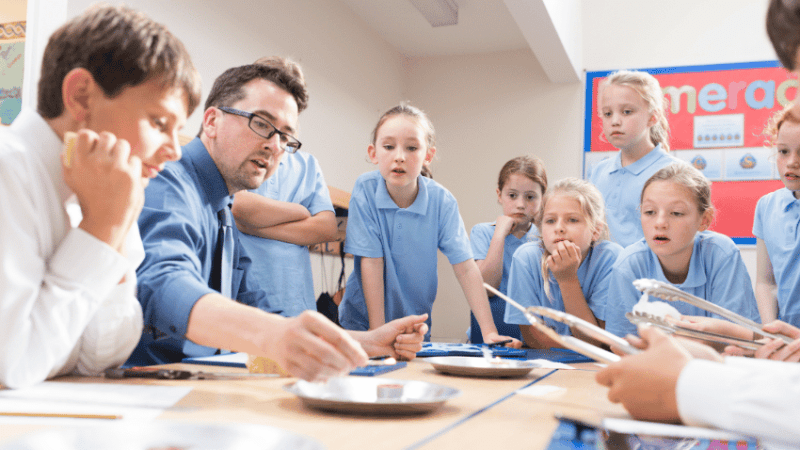Primary school science – Ideas to make physics fun

From failing her A-level (twice), to becoming confident and excited about teaching primary physics, Dr Michelle Saunders shares ideas for fun science engagement…

Teaching a primary science curriculum is no mean feat. We must cover topics ranging from ecology and evolution to forces and electricity. This, coupled with the fact that most primary teachers are not equipped with degree-level science knowledge, can make teaching the sciences rather daunting.
I am not a physicist. In fact, I have the unenviable claim of having failed physics A-level twice – much to the amusement of my physics teacher husband. However, I have always been passionate about science and, after 10 years as a university lecturer in marine biology, I retrained and became a primary teacher.
But no matter our background, the advantage we all have is that children are naturally curious. Watching the early years pupils at my school, I am often overwhelmed by the level of scientific thinking and investigation going on: exploring what makes things melt, how to construct the best bridge, or why shadows occur.
This early science is essential and helps children begin to acquire science knowledge as well as specific and nonspecific vocabulary.
Our role as teachers is to build on this curiosity and support the children to develop their interest and understanding of science so they can explain the world around them, both now and as they get older.
It has become increasingly apparent that children have decided by the time they leave primary school whether STEM subjects will be a likely career option for them: it is therefore essential that we get our teaching ‘right’ to contribute positively to this.
Physics for kids
Of the three disciplines, physics is possibly the one that teachers find most challenging. Often their last experience of physics was their own secondary education, which in many cases did not develop the confidence required to teach the subject.
There is no magic formula for teaching physics, no one way that will guarantee success and a long-term interest in the subject, so what can be done?
Teacher confidence and subject knowledge significantly impact children’s ability to engage and understand a subject and are inextricably linked.
While access to high quality CPD for teachers is a key recommendation from the recent Ofsted review of science teaching, in most primary schools, time, funding and access limit these opportunities. So, you need something cheap (preferably free!), bespoke to your needs, and time efficient. In school, we use the Wellcome Trust’s free online Reach Out CPD to support teachers in preparing for each unit of work. The key to success is to formally build this into CPD time.
As an Ogden Trust partnership school, we benefit from bespoke physics CPD to support staff in their subject knowledge and classroom practice.
The Ogden Trust website is worth a visit for any primary teacher, providing an abundance of free online resources invaluable for planning and delivering high quality lessons.
Check out their Space Camp, too, if you’re looking for extra activities.
The subtle change from physics being something to be wary of, to being something that we celebrate as a school is a powerful message. This is equally true for staff as well as pupils.
Ask a physicist
Working with partner secondary schools may also offer help, as a point of support for more specific questions and to develop links across key stages.
My Y6 children enjoyed an ‘Ask a physicist’ challenge during our light topic last year, sending their questions to our partner secondary school for their A-level physicists to answer – a fantastic opportunity for collaboration and consolidating learning for both sets of pupils.
Local STEM ambassadors, university outreach teams and industry all offer a wide range of free resources and support to help schools with engagement in physics, too.
But more importantly, they show its context, career opportunities and relevance to children’s lives. This is key to promoting passion and interest in science.
Learning is a long-term game, meaning that big, one-off events will not, on their own, lead to this most precious commodity being gained. Becoming more expert in something is a massive, intrinsic motivation that needs to be developed.
Watching a rocket blast into space may produce a wow factor but knowing how the astronauts have trained, what they might experience and what they investigate adds a deep richness to the experience.
It does, however, mean that children need not only to understand the science and its relevance but also take part in activities to help them remember it… long-term.
Developing curiosity, knowledge, excitement and breaking down barriers in learning, physics is quite clever really.
Dr Michelle Saunders is a Y6 teacher and curriculum lead at St Matthew’s Catholic Primary School in Prudhoe, Northumberland. She also leads Ogden Trust and Space Camp partnerships in the region to promote teaching and learning in physics.











